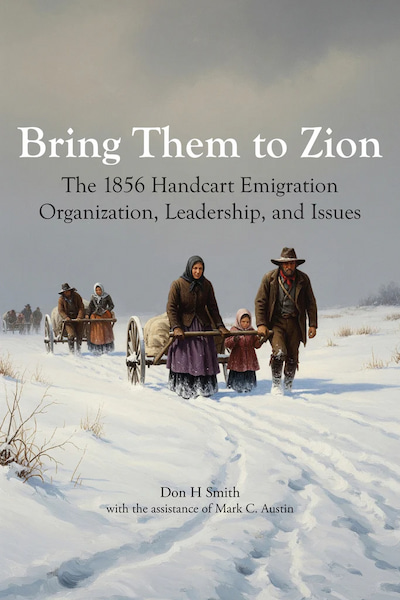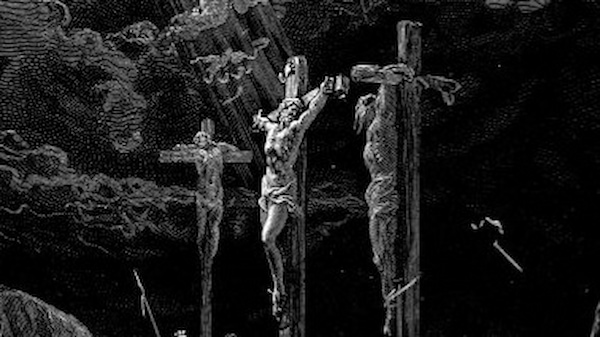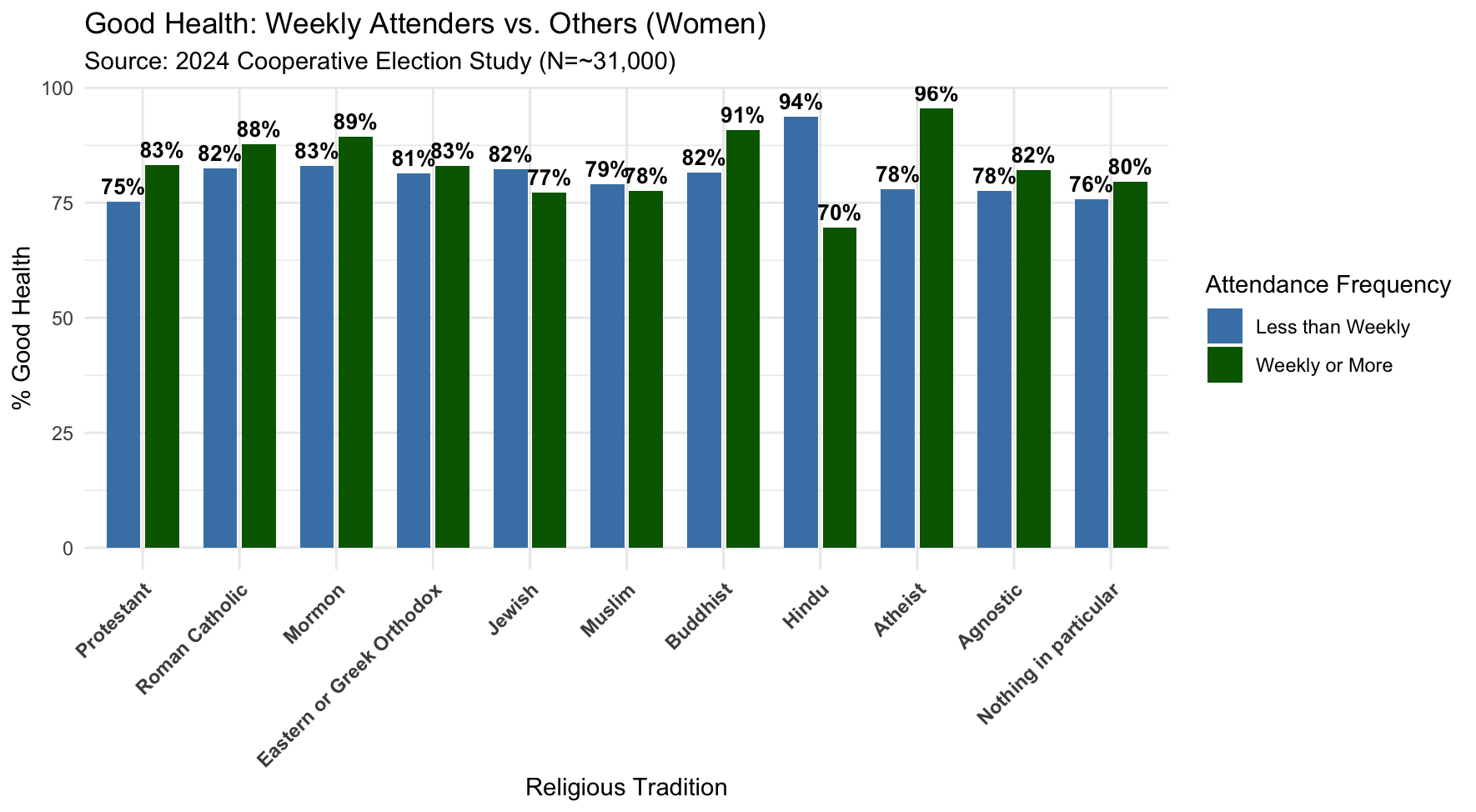-
•
•
One response

Latter-day Saint history has no shortage of narratives concerning the Willie and Martin handcart companies. For many, the 1856 emigration is the ultimate “morality play” of the Restoration—a story of faith under fire and the high cost of the gathering. Yet, while the spiritual lessons of the trek have been well-plowed, the gritty logistical mechanics of why the tragedy occurred have often been obscured by hagiography or simplified blame. In Bring Them to Zion: The 1856 Handcart Emigration Organization, Leadership, and Issues (Greg Kofford Books, 2025), Don H. Smith, with the assistance of Mark C. Austin, provides a meticulously researched… Read More
-
•
•
2 responses
Recently I explored the writings of a Mormon literary thinker little-known among Church members today, Wayne Booth. In The Company We Keep, Booth proposes that human beings not only learn by induction and deduction, but by what he calls “coduction” — the discovery of knowledge in conversation with others. This is a cornerstone of how we are supposed to learn at Church, in our Sunday School, Priesthood and Relief Society classes. It is also a key element to how we are supposed to learn in counsels. It requires that each person in a class, or in a counsels, both listen… Read More
-
•
•

For me, this lesson (to be taught February 8th — I work 2 weeks ahead) might be one of the most important lessons of the whole Come Follow Me cycle. The example of Enoch and the idea of Zion, our utopian ideal, lead to important questions about what we do today and how we organize our society. Yes, it is not possible to actually achieve a utopia — but I think we talk about utopias because they lead us to think about what we are trying to reach, and how to get there. So, especially today, shouldn’t we ask in… Read More
-
•
•
8 responses
The Salt Lake Temple is the supreme architectural icon of the Restoration, a stone fortress that took 40 years to complete. We know the dates (1853–1893) and the legends (buried foundations, granite hauled by oxen), but we rarely ask the human questions: Who actually cut the stone? How did they interpret Brigham Young’s visionary but vague instructions? And is it true that the temple was almost built out of mud? In a fascinating new interview over at the Latter-day Saint history blog, From the Desk, historian Scott D. Marianno peels back the layers of mythology to reveal the sweaty, logistical,… Read More
-
•
•
11 responses

As of about a month or so ago, GPT 5.2 Pro is starting to autonomously solve previously unsolved mathematical “Erdos” problems (a famous set of unsolved problems proposed by arguably-smartest-man-of-all-time Paul Erdos). We’re officially at the point where it can solve math problems we haven’t been able to. However, my understanding is that these are low-hanging fruit problems, but the crowning jewel of mathematical AI is if it can solve the Millennium Problems (prize money of 1 million dollars per problem). Analogously, we’re kind of starting to get there with writing. In a previous post I did some exploratory AI… Read More
-
•
•
13 responses
Morgan, thanks for your guest post. Several people have asked: Why do we do this, if I’m not going to change your mind and you’re not going to change my mind? But I think arguing with people online actually can accomplish some useful things. For one, it demonstrates that faithful church members can’t be simply classified as Republicans vs. Democrats. More importantly, arguing lets us figure out precisely where we agree or disagree and, ideally, distill the point of disagreement down to its essence. Read More
-
•
•
22 responses
Guest post by Morgan Deane. I read Jonathan Green’s post and because the underlying flaws have been repeated at least three times over the past year, I thought it was worth a substantive response, and it was too long for comments. There’s a lot of heat, hyperbole, and moral posturing in his post, but very little that holds up under scrutiny. I take strong exception to his exaggerations, false equivalence, and the assumption that his political lens should dictate the Church’s actions. Read More
-
•
•
7 responses
So a while back I tossed out the idea of faithful LDS who pushed back on some church policies and proposed the label of “ark steadiers.” I thought about these issues while reading and reflecting on Matthew Harris’s Second Class Saints. The big issue for me was that some members did push back on the ban and got declarations, sometimes from the First Presidency, of doctrines that the church leaders now reject. Read More
-
•
•

Signature Books has found a successful niche with its series of brief biographies, providing concise yet substantive introductions to key figures in Latter-day Saint history. The latest entry, Tracy Y. Cannon: Tabernacle Organist and Pioneering Musician, 1879–1961, by Shelby Fisher, is another fantastic addition. Clocking in at approximately 100 pages, it is a fast and accessible read that nevertheless manages to pack a significant punch in the information it delivers. Read More
-
•
•
7 responses
Recently I explored the writings of a Mormon literary thinker little-known among Church members today, Wayne Booth. In The Company We Keep, Booth proposes that human beings not only learn by induction and deduction, but by what he calls “coduction” — the discovery of knowledge in conversation with others. This is a cornerstone of how we are supposed to learn at Church, in our Sunday School, Priesthood and Relief Society classes. It is also a key element to how we are supposed to learn in counsels. It requires that each person in a class, or in a counsels, both listen… Read More
-
•
•
One response

I’m old enough that when thinking about teaching children my mind quickly goes to the wonderful and insightful Crosby, Stills, Nash & Young song, “Teach Your Children Well”. Most of all, the song points out an often overlooked element of teaching, that we really don’t know and can’t completely understand what our children have gone through, just as they can’t really understand us completely. So the song urges us to teach well in spite of this, feeding children on our dreams.[1] We focus on teaching children because it is so vital to their growth and because it is so important… Read More
-
•
•
13 responses
Kendall Buchanan is a Provo business owner with a wife and six kids, and a passion for religious scholarship, especially Mormonism. Visions of Glory is a side-effect of our spiritually vibrant Mormon culture. Part 1 of a three-part series discussing the book and its significance. Ever since Visions of Glory was spotted in a photo with Lori Daybell lounging by a pool, the book has taken on a villainous reputation for inspiring a string of visionary Mormon criminals residing in Utah. The 1980s gave us Mark Hoffman and the Lafferty brothers. The 2020s will be remembered for Hildebrant-Franke, the Daybells,… Read More
-
•
•
30 responses
1—To get this out of the way: There was no good answer to the question of how the Church should have responded to Nazism. There was no safe middle ground between complicit engagement, impotent resistance, and needless death. If letting missionaries train the German basketball team had a .01% chance of making war less likely, then it was worth trying. The truth of the Church’s response to Nazism is not a handful of missionaries playing basketball, but 100,000 LDS soldiers fighting in the war against the Axis powers, with 5,000 dying during the war. The lesson for today is: Don’t… Read More
-
•
•
3 responses

Guest post by David Metcalfe I recently saw a post on social media of two missionaries in Africa playing soccer with some local teenagers, and under the video were some normal comments like “that’s so cool!”, but then some inevitable, bizarre diatribes about how evil the church is. If you use social media, you’ve definitely seen this concept before. A normal, nice, uplifting video about the church doing a charity project or a quote about being kind to others, and somehow, there are always a few comments from someone who feels the need to write an argumentative attack against… Read More
-
•
•
3 responses

If I felt the spirit telling me that there was a Loch Ness Monster, I probably still wouldn’t believe, simply because I’d a priori expect some hard evidence to have shown up by now if a plesiosaur was surviving in the Scottish Highlands. Reason and science provide epistemological boundary markers for religious claims, and I’m skeptical of any religious premise that expects us to throw out all reason, or treats belief in the face of reason as a virtue. (Real reason, not the “Reason!” that is used as a conversation stopper by militant atheist types). Of course, I can hear… Read More
-
•
•
4 responses
When we think of the 19th-century gathering to Zion, our minds usually go straight to handcarts and covered wagons struggling across the plains. Yet, for the tens of thousands of European converts who heeded the call to gather, the “trail” was only the final leg of a much longer, more complex journey by rail and sail. In a fascinating new interview over at the Latter-day Saint history blog, From the Desk, historian Fred E. Woods (author of Ports to Posts: Latter-day Saint Gathering in the Nineteenth Century) dives into the massive logistical machine that moved a people across oceans and… Read More
-
•
•
8 responses
![Dieter F. Uchtdorf, [Probable Future] President of the Church of Jesus Christ of Latter-day Saints](https://timesandseasons.org/wp-content/uploads/2026/01/unnamed-1.jpg)
I wanted to wait an appropriate span after the death of President Holland to start speculating about the downstream implications of his passing for the future leadership of the Church, so here it is. Obviously the image is AI generated and I don’t claim any special insight into who would constitute the First Presidency in the event of an Uchtdorf Presidency, but if I had to parlay a guess a Christofferson/Bednar would make the most sense logically for continuity (Christofferson) and training for the presidency (Bednar), but who knows who he’d be inspired to call. While they have the worst… Read More
-
•
•
3 responses
Recently I explored the writings of a Mormon literary thinker little-known among Church members today, Wayne Booth. In The Company We Keep, Booth proposes that human beings not only learn by induction and deduction, but by what he calls “coduction” — the discovery of knowledge in conversation with others. This is a cornerstone of how we are supposed to learn at Church, in our Sunday School, Priesthood and Relief Society classes. It is also a key element to how we are supposed to learn in counsels. It requires that each person in a class, or in a counsels, both listen… Read More
-
•
•

Few stories in human history have the impact of the story of the fall of Adam and Eve. In the traditions of most of the world, the story suggests answers to issues like the existence of evil, the role of men and women, the purpose of life and the nature of God. Of course, the answers are interpreted in many different ways in different traditions. The LDS tradition departs from the traditions of mainstream Christianity, of course, and those differences, based at least in part on the additional scripture we use beyond what other have, give us significantly different interpretations,… Read More
-
•
•
6 responses
For many Latter-day Saints, the opening chapters of Genesis, with their creation accounts, are a battleground. We try to map the “days” of creation onto geological eras, reconcile a localized flood with global stratigraphy, or fit evolution into the rib of Adam. But what if we are asking the text to do something it was never designed to do? In a refreshing and technically grounded new interview over at the Latter-day Saint history blog, From the Desk, BYU ancient scripture professor Avram R. Shannon suggests that the key to understanding Genesis isn’t to force it into harmony with 21st-century science,… Read More
-
•
•
28 responses

I am typically hesitant to speak critically of my experiences within the Church. To me, it is patently obvious that the Church is a force for good; in almost all cases, I have felt the Spirit working through its leadership and organizational structures. Furthermore, there is a certain Internet cottage industry that traffics exclusively in negative experiences, and in my observations that path rarely leads one toward more of the shiny fruit. And yet, less savory things do happen. While these instances are often blown out of proportion by critics, pretending they don’t exist creates its own set of problems.… Read More
-
•
•
7 responses
Building on the collection of links about Latter-day Saint books for last year (Mormon Studies Books in 2025), here is the collection of books I’ve been able to find out about for 2026. I will continue to update this page throughout the year, as reviews, interviews, and podcasts become available for the books and other books come to my attention. Read More
-
•
•
2 responses
Recently I explored the writings of a Mormon literary thinker little-known among Church members today, Wayne Booth. In The Company We Keep, Booth proposes that human beings not only learn by induction and deduction, but by what he calls “coduction” — the discovery of knowledge in conversation with others. This is a cornerstone of how we are supposed to learn at Church, in our Sunday School, Priesthood and Relief Society classes. It is also a key element to how we are supposed to learn in counsels. It requires that each person in a class, or in a counsels, both listen… Read More
-
•
•
One response

Creation is a crucial idea in LDS thought — we have shifted its meaning to suit a different cosmology, and its meaning remains in flux between the implications of our theology and what the rest of humanity understands. In LDS thought, not only is creation about using pre-existing materials (including us!) to create something new and something better, it is also something that each of us is learning. In this sense, we should cultivate the basic attitude needed to become creators — that of being creative. Read More
-
•
•
30 responses
So I’m thinking about this issue after having watched Netflix’s documentary on Jodi Hildebrandt, “Evil Influencer”: what’s up with Mormons doing criminal and immoral things under the belief they are inspired by God? Such acts, of course, are pretty rare, but at this point it’s feeling a little disconcerting for it to appear that a seeming high percentage of such concerning cases happen among the Mormons. Read More
-
•
•
6 responses

There are a handful of general authorities whose way with words guaranteed them a certain this-world immortality that goes beyond Wikipedia lists or early childhood memories of General Conference. Elder Maxwell was one, and I think President Holland is another. I’ve been seeing various people post some of their favorite or most impactful President Holland talks, so I’ve collated them together to produce a listing of the classic Holland talks. Feel free to add any I may have missed in the comments. Missionary Work and the Atonement However Long and Hard the Road The Bitter Cup and the Bloody Baptism… Read More
-
•
•
One response
There’s been lots of talk about the church granting more allowance additional biblical translations beyond the KJV, but I’m arguing in this post that I don’t think that’s what Joseph Smith meant by the eighth article of faith “as far as it is translated correctly.” JS of course did a revision of the Bible, but it contained very little of the fuller truth he taught in Nauvoo. The Articles of Faith also contained very little of JS’s fuller doctrine: no preexistence, plan of salvation, deification, eternal marriage, etc. Read More
-
•
•
5 responses
If you look strictly at our server logs, you might think Times & Seasons is a resource blog for Christmas scripts and demographic statistics. But if you look deeper, 2025 was a year of “The Anxious Debate”—anchored, thankfully, by a massive amount of reading. We spent the last twelve months wrestling with political dread, debating the nature of Church leadership, and doing our homework. Here is a look at the conversations (and the reading lists) that defined T&S in 2025. Read More


